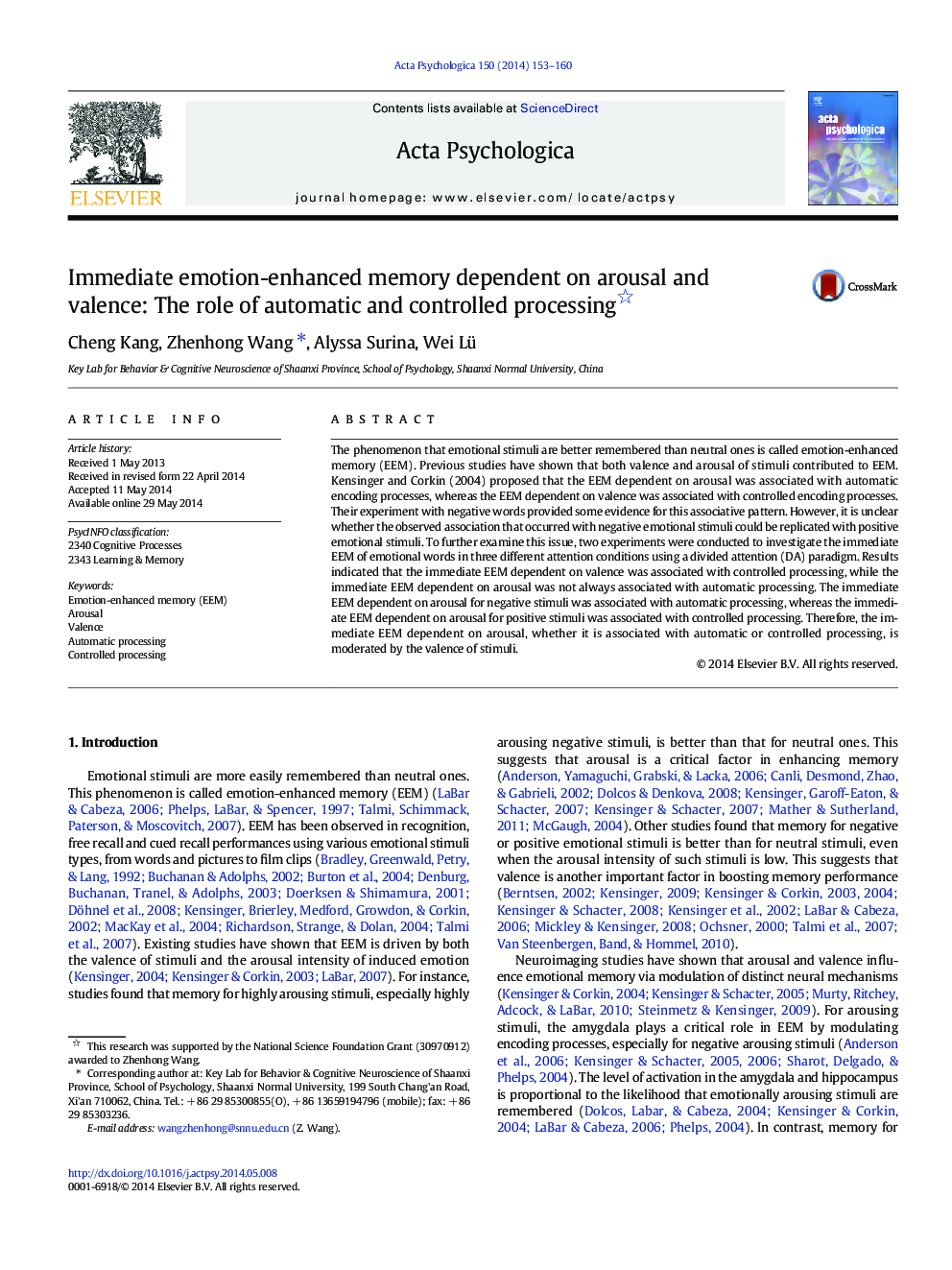| Article ID | Journal | Published Year | Pages | File Type |
|---|---|---|---|---|
| 919744 | Acta Psychologica | 2014 | 8 Pages |
•The immediate EEM dependent on valence is associated with controlled processing.•The immediate EEM dependent on arousal is moderated by valence.•The immediate EEM of arousal for negative stimuli is based on automatic processing.•The immediate EEM of arousal for positive stimuli is based on controlled processing.
The phenomenon that emotional stimuli are better remembered than neutral ones is called emotion-enhanced memory (EEM). Previous studies have shown that both valence and arousal of stimuli contributed to EEM. Kensinger and Corkin (2004) proposed that the EEM dependent on arousal was associated with automatic encoding processes, whereas the EEM dependent on valence was associated with controlled encoding processes. Their experiment with negative words provided some evidence for this associative pattern. However, it is unclear whether the observed association that occurred with negative emotional stimuli could be replicated with positive emotional stimuli. To further examine this issue, two experiments were conducted to investigate the immediate EEM of emotional words in three different attention conditions using a divided attention (DA) paradigm. Results indicated that the immediate EEM dependent on valence was associated with controlled processing, while the immediate EEM dependent on arousal was not always associated with automatic processing. The immediate EEM dependent on arousal for negative stimuli was associated with automatic processing, whereas the immediate EEM dependent on arousal for positive stimuli was associated with controlled processing. Therefore, the immediate EEM dependent on arousal, whether it is associated with automatic or controlled processing, is moderated by the valence of stimuli.
